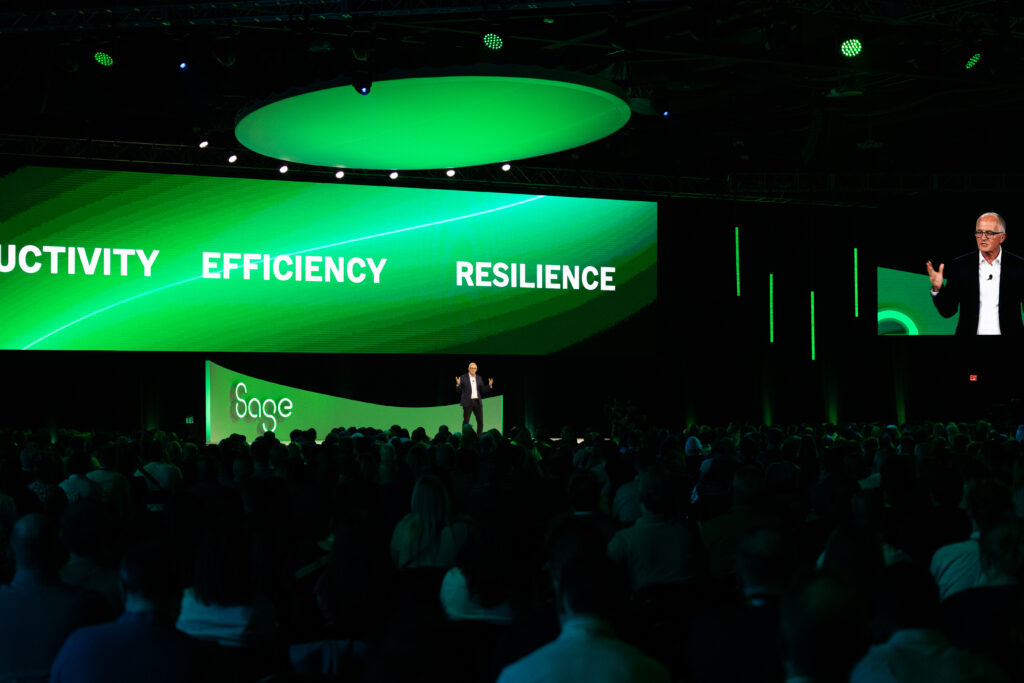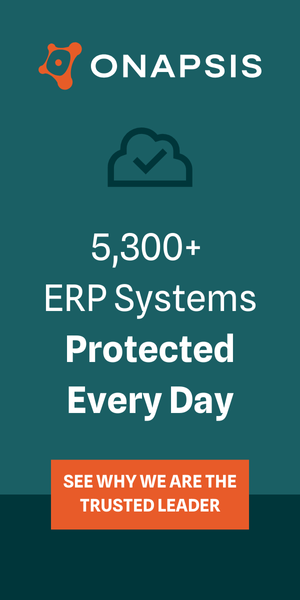The second day of Sage Future in Atlanta began on June 4 with the launch of its strategic direction towards an Agentic AI era. This vision empowers chief financial officers (CFOs) and enhances small and medium businesses’ (SMBs) productivity and performance, which are grounded in trust, transparency, and customer empowerment.
Building on nearly a decade of embedded AI and the successful adoption of its generative AI productivity assistant, Sage Copilot, Sage is now looking to integrate agentic AI. This third wave of innovation will introduce autonomous agents for SMBs.
“AI is already transforming how small and mid-sized businesses operate,” affirmed Aaron Harris, Chief Technology Officer at Sage. “We’re not just delivering generative intelligence; we’re making sure that intelligence scales across workflows, and we’re building toward autonomous capabilities that can support smarter, faster, more confident decision-making.”
The Next Wave: Agentic AI
Speaking during a keynote session on Day two of Sage Future, Harris elaborated on the three waves of Sage’s AI journey:
- Task-based AI: Initial AI focused on automating specific, repetitive tasks like anomaly detection and invoice classification, enhancing efficiency behind the scenes within products like Sage Intacct.
- Generative AI: Represented by Sage Copilot, this wave empowered users to discover insights, analyze financial information, and accelerate processes such as the month-end close, delivering measurable time savings and improving confidence in financial data. Today, over 40,000 Sage customers use this globally.
- Agentic AI: This new frontier involves systems capable of coordinating complex tasks, making reasoned decisions, and acting with minimal direct human oversight while keeping the user in control.
According to Harris, the third wave will be delivered in two surges:
- Agentic Applications (Emerging): AI agents that orchestrate workflows across various systems, responding to natural language queries like “What caused the drop in Q2 revenue?” with contextual answers powered by retrieval-augmented generation (RAG) and multi-agent coordination.
- Autonomous Agents (In testing): Advanced systems to proactively detect business risks, initiate multi-step responses, and communicate with other agents to resolve issues. These capabilities are anticipated for customer availability within the next 12–36 months.
To realize this ambitious vision, Sage is embedding AI into its products and revolutionizing its product development with key enablers. These include the Sage AI Factory for secure AI model training and deployment, domain-specific models fine-tuned on deep accounting, payroll, and compliance expertise, and the Sage Copilot Framework to ensure seamless, consistent AI experiences across its product suite.
A New Partnership for CFOs
Further bolstering its commitment to industry-aligned AI, Sage also announced at the event a collaboration with CPA.com, the business and technology arm of the American Institute of CPAs (AICPA). This initiative will involve licensing select AICPA professional literature to train Sage Copilot.
The goal is to enhance the accuracy, context, and trust of the generative AI assistant for U.S. accountants by aligning it with authoritative standards. Harris described this as a landmark moment, stating, “By working with CPA.com, we’re reinforcing our commitment to trustworthy, accurate, and standards-aligned AI that adds real value for finance professionals.”
Keeping AI Secure and Trusted
Underscoring its commitment to transparency in this AI evolution, Harris also announced the development of Sage’s AI Trust Label. This initiative aims to provide Sage customers with clear, accessible information about how AI functions within Sage products, focusing on key trust indicators such as data privacy, how customer data is used, safeguards against bias, and systems for monitoring accuracy.
Harris emphasized the importance of this move, stating, “AI adoption should never come down to blind trust. Businesses deserve to know how the technology works, how their data is used, and what safeguards are in place. The AI Trust Label is a direct response to that need—for transparency, not assumptions.”
With these advancements, Sage aims to redefine SMBs’ operational capabilities, positioning them to leverage intelligent automation for sustained growth and more strategic decision-making in an increasingly complex business landscape.
What This Means for ERP Insiders
The ascent of Agentic AI demands proactive upskilling and process re-evaluation. The move from generative AI assistants like Sage Copilot towards more autonomous, agentic AI signifies a major shift. For ERP professionals in financial services, this includes understanding new features and anticipating how AI will independently orchestrate complex financial workflows like dynamic risk assessments, automated compliance checks across multiple regulatory frameworks, and proactive fraud intervention that spans beyond the ERP. This necessitates upskilling to grasp how these agents learn, make decisions, and integrate across the financial IT landscape. ERP systems will evolve from core transactional engines to intelligent hubs interacting with these agents. Professionals must start identifying financial processes ripe for this level of automation and consider the new governance and oversight models required.
Trust, transparency, and verifiable standards are becoming critical differentiators. The financial services sector operates on a foundation of trust and is subject to stringent regulations. Sage’s introduction of an AI Trust Label underscores a vital trend: the demand for provably responsible and transparent AI. ERP professionals advising or implementing AI solutions must prioritize these aspects. It’s no longer enough for AI to be powerful; it must be explainable, auditable, and aligned with industry-specific ethical guidelines and professional standards. When evaluating or deploying AI-driven ERP capabilities, the focus should be on how vendors ensure data integrity, mitigate bias, provide clarity on AI decision-making, and integrate authoritative knowledge—these are becoming non-negotiable for adoption and regulatory peace of mind.
Deep integration with cross-platform orchestration is key. The real power of AI in financial services will be unlocked by AI systems that can seamlessly access, interpret, and apply validated, domain-specific knowledge and then orchestrate actions across a diverse ecosystem of financial applications. The Sage/CPA.com partnership is a clear example of embedding authoritative knowledge. For ERP professionals, this means looking beyond the ERP’s native AI capabilities to see how well it can serve as a central, intelligent node that integrates with external knowledge sources and orchestrates processes across trading platforms, risk management systems, compliance reporting tools, and customer interaction platforms.





